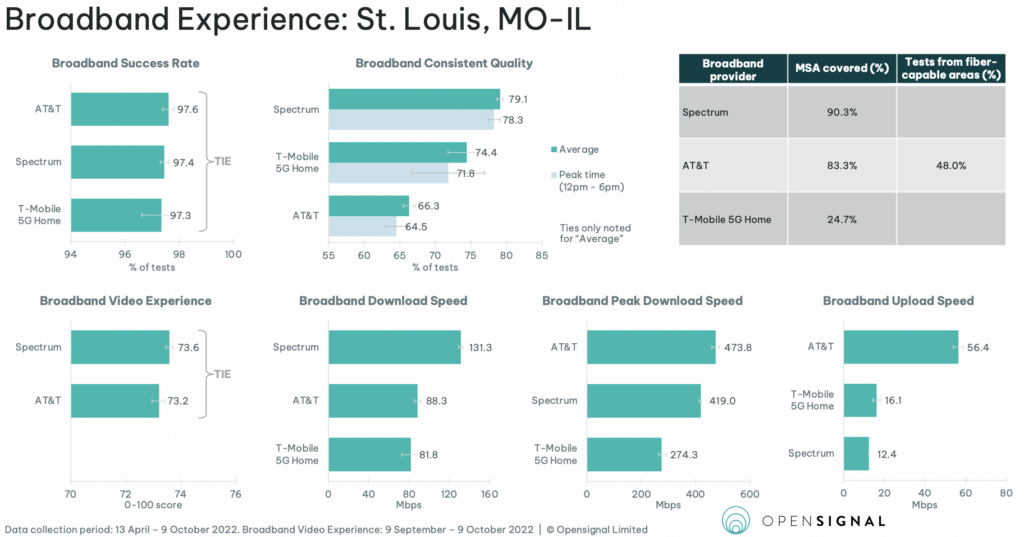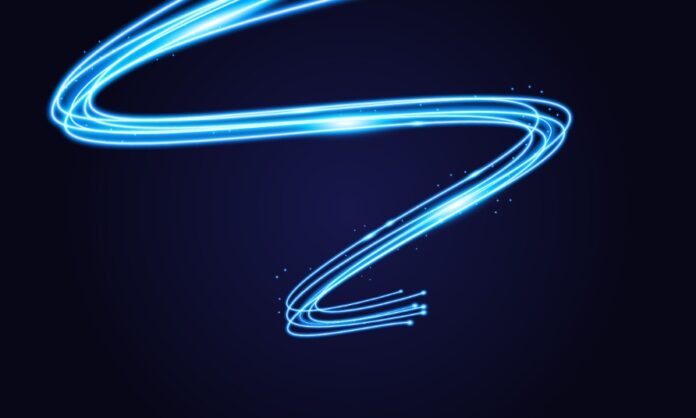In a new report, Opensignal explored the fixed broadband experience in 25 U.S. cities, a process that ultimately led to several key findings. The report is the first of its kind because it includes both wired and 5G Fixed Wireless Access, due to the introduction of that service in a range of markets, plus the historic government funding partially aimed at closing the digital divide. Such developments have led to a shake up in the U.S. broadband market.
According to Opensignal, fixed broadband is undergoing rapid development and modernization in the U.S., leading to more provider competition, and therefore, more consumer choice.
Second, the testing and analysis firm found that, across the six metrics used to evaluate broadband experience — broadband success rate, broadband consistent quality, broadband video experience, broadband download speed, broadband peak download speed and broadband upload speed — 5G FWA players are “typically middle of the pack.”
The company said that across its six measures measures of fixed broadband experience, “Incumbent cable and telecom companies typically comfortably beat the new entrant 5G FWA providers, at least for now.”
Notable results include Verizon’s domination in all the categories — either solely or jointly — in the Washington DC/Arlington/Alexandria market, largely due to its extensive fiber footprint in the area. Opensignal wrote that the carrier “outperformed the competition in almost all the measures of the broadband experience,” particularly in the areas of speed where it achieved the fastest measured throughput in broadband download speed, broadband peak download speed and broadband upload speed.
In St. Louis, Charter Communications (Spectrum) came out on top, beating or tying AT&T in four of six categories, while AT&T achieved the fastest broadband peak download speed, clocking in at 473.8 Mbps — 13.1% faster than Spectrum. T-Mobile’s 5G Home service in the city was disappointing, with reports showing a download speed that is 72.7% slower than AT&T’s.

Over in Denver, Aurora and Lakewood, Comcast’s Xfinity service came in first in broadband video experience, broadband download speed and broadband peak download speed, while CenturyLink achieved the fastest broadband upload speed at 30.8 Mbps, which is more than twice as high as the upload speeds Xfinity and T-Mobile 5G Home users experienced.
Overall, however, cable companies (Charter, Comcast, Altice’s Optimum and Cox) had the highest broadband download speed scores. “This success for cable providers … was despite the arrival of 5G-based fixed broadband. Fiber players are changing this situation, but in the 25 cities analyzed in this report they lead in a minority,” said Opensignal.
When it came to broadband upload speed, though, incumbent landline companies demonstrated “substantial leads” as a result of their extensive fiber-to-the-home footprints. “Fiber-based players are far ahead of every other type of broadband technology in the broadband upload speed experience category, which has grown in importance since the pandemic as more people work from home,” stated Opensignal.
Another interesting finding is that, once Opensignal compared its results to the speeds advertised by providers, it found significant discrepancies. “Claimed speeds are now as high as 2 Gbps or 5 Gbps, with 8 Gbps in 2023,” the firm stated. None of the providers real-world speeds in any category or in market reached such heights.

